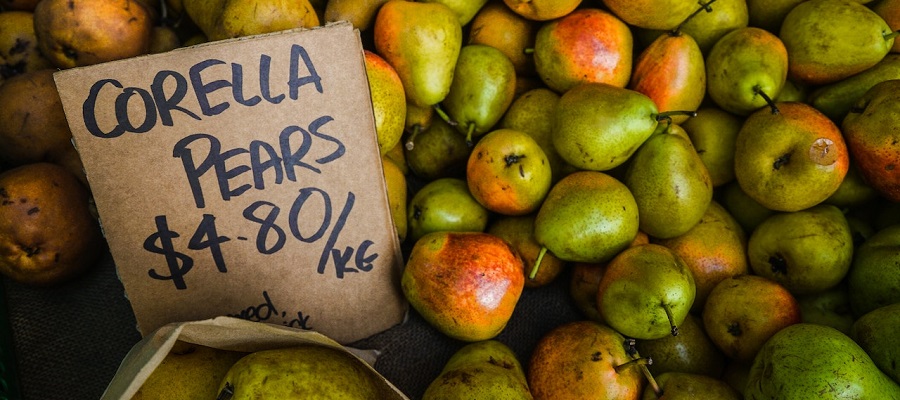Grocery wholesalers play a crucial role in the food industry, serving as intermediaries between manufacturers and retailers. They work with a wide range of suppliers to negotiate prices and terms for the products they sell to retailers. In this article, we will explore the various factors that influence the negotiations between wholesalers and suppliers, as well as the strategies and tactics that are often used in these negotiations.
-
Understanding the market and demand for products
Understanding the market and demand for products is an essential factor for grocery wholesalers to consider when negotiating with suppliers. This involves conducting market research, analyzing trends and consumer behavior, and working closely with retailers to understand their needs and preferences.
Market research can help wholesalers to identify emerging trends and consumer demands, which can inform their purchasing decisions and negotiations with suppliers. For example, if a particular type of product is in high demand, wholesalers may be willing to pay a premium price to secure a sufficient supply. On the other hand, if demand is low or uncertain, wholesalers may be more cautious in their purchasing decisions and negotiate more favorable terms with suppliers.
In addition to market research, wholesalers can also gather insights into consumer behavior and preferences by working closely with retailers. Retailers often have access to detailed data on customer purchases and can provide valuable insights into which products are selling well and which are not. By incorporating this information into their negotiations with suppliers, wholesalers can ensure that they are securing the products that are most in demand and likely to generate the greatest return on investment.
Finally, it is important for wholesalers to be aware of any regulatory or other factors that may impact the demand for products. For example, changes in food safety regulations or consumer preferences for organic or sustainably-sourced products may affect the demand for certain products and impact negotiations with suppliers. By staying informed about such developments and incorporating them into their purchasing decisions, wholesalers can better position themselves to meet the demands of their customers.
-
Assessing the cost of goods and margins
Assessing the cost of goods and margins is an important factor for grocery wholesalers to consider when negotiating with suppliers. This involves understanding not only the cost of the raw materials and labor required to produce the products, but also any additional costs such as transportation and storage. By analyzing these costs and margins, wholesalers can determine how much they are willing to pay for products and what terms they are prepared to offer.
To assess the cost of goods, wholesalers may rely on information provided by suppliers, as well as their own internal analysis. This may involve reviewing detailed cost breakdowns, analyzing production processes, and identifying any potential areas for cost savings. By understanding the true cost of goods, wholesalers can negotiate more favorable prices and terms with suppliers, while still ensuring that they are able to achieve their desired margins.
In addition to the cost of goods, wholesalers also need to consider their overall margins when negotiating with suppliers. Margins represent the difference between the cost of goods and the price at which they are sold, and are an important measure of a business's profitability. Wholesalers may have different margin targets depending on the products they sell, the market conditions, and their overall business objectives. By carefully analyzing their margins and negotiating prices and terms that allow them to achieve their target margins, wholesalers can ensure the long-term viability of their business.
-
Leveraging relationships and partnerships
Wholesalers often rely on strong relationships and partnerships with suppliers to negotiate favorable prices and terms. By building trust and demonstrating a commitment to long-term collaboration, wholesalers can often secure better deals from their suppliers. This may involve working together to develop new products, sharing market insights and data, or offering other forms of support and assistance.
-
Negotiating terms and conditions
The terms and conditions of a contract can have a significant impact on the overall cost and value of a product. Wholesalers may negotiate with suppliers on a variety of terms, including payment terms, delivery schedules, minimum order quantities, and return policies. By carefully reviewing and negotiating these terms, wholesalers can minimize risks and ensure that they are able to secure the products they need at the most favorable terms possible.
-
Utilizing purchasing power and volume discounts
Wholesalers often have significant purchasing power, as they are responsible for purchasing large quantities of products from a wide range of suppliers. This can give them leverage in negotiations, allowing them to secure volume discounts and other concessions from suppliers. By leveraging their purchasing power and negotiating volume discounts, wholesalers can reduce their costs and improve their margins.
In conclusion, grocery wholesalers work with suppliers to negotiate prices and terms in order to secure the products they need to meet the demands of their customers. This involves assessing market demand and the cost of goods, leveraging relationships and partnerships, negotiating terms and conditions, and utilizing purchasing power and volume discounts. By following these strategies and tactics, wholesalers can effectively negotiate favorable prices and terms with their suppliers.


